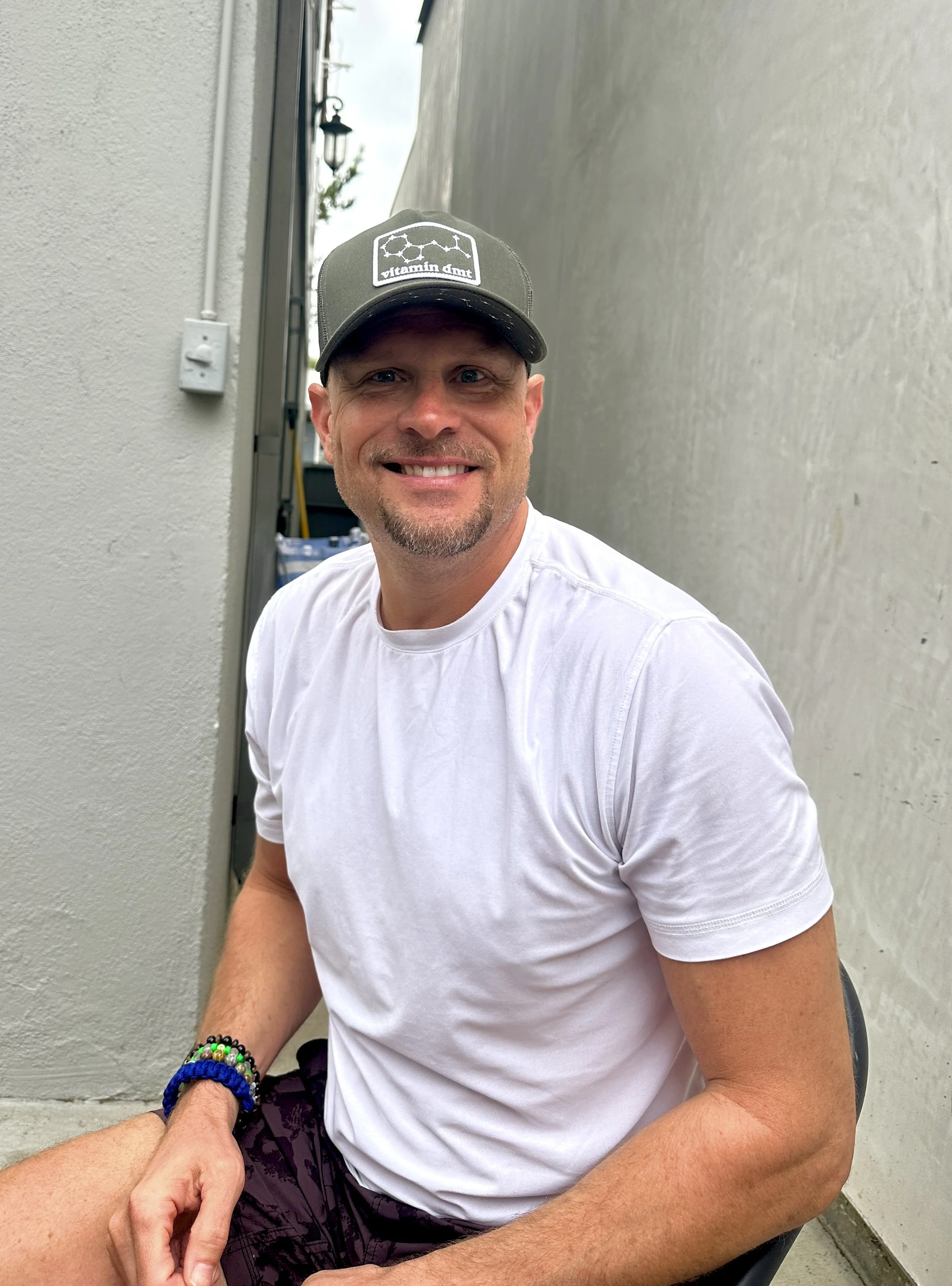The Future of Psychedelic Safety: A Conversation with Joe Robinson
In a landscape where psilocybin products often lack quality control and consumer safety is an afterthought, Joe Robinson is working to change the story. With decades of experience in healthcare and a deep respect for plant medicines, he founded PsiloSafe, an independent verification initiative focused on standardizing testing, labeling, and education within the emerging psychedelics market. In this interview, Joe shares his personal journey, the vision behind PsiloSafe, and why he believes community-based self-regulation, not corporate capture, is the future of safe and ethical psychedelic use.
1. What was the turning point when you realized that labeling and testing standards were missing pieces in the psychedelic space, and how did that realization shape PsiloSafe’s direction?
I recognized the need for standardization when I was approached by practitioners working with natural therapies that needed tested and verified products but had trust issues with the unregulated market and brands. The current access model is run by a mix of opportunists looking to profit off off of the “psychedelic wave”, and small producers who mean well but don’t have the experience producing therapeutic quality products. In contrast to cannabis, psychedelic products carry a high risk of adulteration, deceptive labeling, and potency variability.
I realized that if we didn’t take responsibility for self-regulation now, we missed out on a huge opportunity to protect the customers, the patients, and the movement. PsiloSafe was born from that realization, to create a standard of transparency, consistency, and accountability by the community, for the community.
2. PsiloSafe positions itself as both a verifier and a bridge between brands and consumers. How do you see that dual role influencing the evolution of trust in this emerging industry?
We believe that psilocybin and other natural medicines should be decriminalized and governed through light-touch, community based frameworks that prioritize safety, equitable access, and community empowerment. Because prohibition still defines this space, there’s a vacuum that opportunists have rushed to fill, often putting profit before purpose.
PsiloSafe is designed to reorient the compass toward integrity. By educating consumers on what to consider when sourcing products, and holding brands to a standard that prioritizes clear labeling and testing, we build a bridge where therapeutic quality products can be found by educated seekers.
If you want confidence that the product you are using is safe, look for the PsiloSafe seal.
3. In a market where most retail products reportedly don’t contain actual psilocybin, how do you balance transparency with education without alienating well-meaning producers still learning best practices?
With the information we know about the use of synthetics, analogs, and adulterants in most edible “mushroom” products, it’s mandatory that brands furnish testing info to confirm what compounds are in the product before taking.
This movement isn’t about punishment, it’s about progress. We never want to shame or blacklist those genuinely trying to do the right thing. But there’s a clear distinction between honest learning and deceptive labeling. When brands hide ingredients to protect themselves, they leave consumers exposed to real risks. PsiloSafe’s standards are meant to guide, not regulate.
We exist to help producers improve their testing protocols, hit potency targets, eliminate contaminants, and refine their processes. The goal is simple, protect the consumer, honor the medicine, and elevate the entire movement through shared education and integrity.
4. You’re creating a verification seal that could become a visual marker of integrity in the space. What did you learn from other industries (like supplements or cannabis) when designing what that seal should stand for?
The biggest lesson was this: always keep the patient, and the intention as the focal point. In cannabis, testing became a race to post the highest THC numbers, and some labs started cutting corners to satisfy producers. That’s what happens when profit eclipses principle.
With PsiloSafe, we stay patient and outcomes focused by forming a coalition of ethical labs, manufacturers, and brands that set standards together in service of the movement, not the marketplace. The supplement industry also taught us how misleading labels can harm public trust. Our seal represents truth and transparency. When people see it, they understand that brand is taking steps that are not required, but care enough about the movement to take time and investment to better serve their customers.
Bottom line is if the brand has the PsiloSafe seal, it is cleared for therapeutic use.
5. Before PsiloSafe, what experiences or personal moments led you to focus on consumer safety and standardization in psychedelics rather than other aspects like access or advocacy?
Spending time in healthcare, it became obvious how broken the medical system is and how much value is lost on things that don’t benefit the patient. We’ve placed blind faith in agencies and corporate interests that prioritize profit over human well-being and it’s poisoned both our trust and our health.
Natural medicine and the psychedelics movement presents an opportunity to incorporate methods learned from our indigenous roots, set in community based initiatives, free of corporate influence. PsiloSafe is part of that reclamation. It’s about saying: “we can regulate ourselves, protect each other, and take sovereignty for our mental health and wellness. We got this!”
6. Psychedelics tend to attract visionary thinkers — how has your relationship to these substances shaped your philosophy around ethics, safety, or business integrity?
For me, it’s essential to stay personally connected to the medicine. These are not just compounds, they are teachers. When you listen deeply, you realize there’s no room for ego, deception, or exploitation. The medicine demands respect. It asks us to operate with humility, to honor the lineage that carried these practices through centuries, and to hold ourselves to the highest ethical standards. If you don’t listen and work with the medicine, the medicine will work you in ways that might not be so comfortable.
7. What was one challenge that almost made you give up on building PsiloSafe, and what shifted your perspective to keep going?
In an unregulated market, the temptation for most brands is to “stay in the trap”. It’s easy to sell untested products and hide behind anonymity. I questioned whether anyone would care enough to hold themselves accountable when cutting corners was so profitable. But I kept going because I realized, even if no one else did it, I would. I built PsiloSafe for the circle of producers I trusted, just to prove it could be done. And then something incredible happened, others joined. Producers reached out with curiosity, respect, and a shared desire for change. That solidarity reminded me that the underground is evolving. We’re not as fragmented as we think, we just needed to step out of our silos with a common goal to help our communities heal.
8. Looking ahead, how do you imagine PsiloSafe contributing to the long-term cultural narrative of psychedelics — beyond testing and labeling — perhaps as part of how society redefines “safe use”?
We don’t need heavy bureaucratic oversight to keep ourselves safe with plants and natural therapies. What we need is community, accountability, and respect for the medicine. With some modalities, they just don’t fit the modern medical model. I believe in some cases, spirit/natural medicines and insurance companies and Western Medicine for about as well as throwing a hockey puck onto a football field and telling the athletes to “play ball”…it just won’t work.
PsiloSafe is proving that self-regulation in traditional community based access models isn’t just possible, it’s powerful. This movement is about letting as many people contribute as possible. When you have a healer, a space maker, a cultivator, a medicine producer, an integrator, and numerous other contributors working in kind to lift communities, the power of this synergy becomes spiritual.
This is about reclaiming our sovereign right to manage our own healing, responsibly and collectively. For thousands of years, humans have held ceremony and cared for one another without heavy oversight. We’re simply reviving that wisdom in a modern context. My hope is that PsiloSafe becomes both a standard and a story, a living example that communities can organize, self-regulate, and thrive without losing their soul to profit and consumption.
Joe Robinson,
Founder of PsiloSafe
is a distinguished university professor, landscape architect, psychologist, and transdisciplinary researcher who bridges the realms of Indigenous Amazonian wisdom and Western academic inquiry. Born in Belgrade and shaped by her ancestral roots in both the Balkans and the Peruvian Amazon, she brings a rare and powerful perspective to the study of consciousness, healing environments, and spiritual ecology.
Holding a PhD in Architecture, her work extends across landscape and neuroarchitecture, transpersonal psychology, and intercultural dialogue, grounded in a profound respect for both scientific rigor and ancestral knowledge. She has taught at multiple institutions in Europe and South America and remains a tireless advocate for the ethical engagement with traditional medicine and the protection of Indigenous cultural heritage.
📍USA


